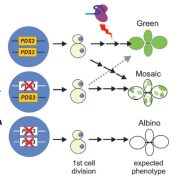Optimizing short-format training: Effective, inclusive, and career-spanning professional development
 Short-format training (SFT) provides opportunities for people to acquire knowledge and skills outside of traditional degree-granting programs. Unfortunately, in spite of good intentions, there’s evidence to suggest that the SFTs aren’t always very effective, and that the knowledge gained doesn’t necessarily persist. A group of experts and practitioners of SFT have crafted a set of principles, called the Bicycle Principles to guide the development and practice of SFTs. These include a set of Core Principles (Use best evidence; Be effective; Be inclusive, Promote catalytic learning) and Community Principles that help communities (groups) increase the impact of SFTs through Reach, Scale, and Sustainability. The accompanying website (https://www.bikeprinciples.org/) provides a closer look at specific recommendations to support these principles. All the recommendations are interesting and very informative, but I particularly enjoyed reading and thinking about recommendation L, Develop an implementation strategy for Catalytic Learning. Catalytic learning “prepares the learner to continue/implement new knowledge and positions learners for future self-directed learning.” In other words, for the developers of the SFT to provide structures, resources, and motivation so that the SFT serves as a starting point for ongoing independent learning. (Summary by Mary Williams @PlantTeaching) bioRxiv 10.1101/2023.03.10.531570
Short-format training (SFT) provides opportunities for people to acquire knowledge and skills outside of traditional degree-granting programs. Unfortunately, in spite of good intentions, there’s evidence to suggest that the SFTs aren’t always very effective, and that the knowledge gained doesn’t necessarily persist. A group of experts and practitioners of SFT have crafted a set of principles, called the Bicycle Principles to guide the development and practice of SFTs. These include a set of Core Principles (Use best evidence; Be effective; Be inclusive, Promote catalytic learning) and Community Principles that help communities (groups) increase the impact of SFTs through Reach, Scale, and Sustainability. The accompanying website (https://www.bikeprinciples.org/) provides a closer look at specific recommendations to support these principles. All the recommendations are interesting and very informative, but I particularly enjoyed reading and thinking about recommendation L, Develop an implementation strategy for Catalytic Learning. Catalytic learning “prepares the learner to continue/implement new knowledge and positions learners for future self-directed learning.” In other words, for the developers of the SFT to provide structures, resources, and motivation so that the SFT serves as a starting point for ongoing independent learning. (Summary by Mary Williams @PlantTeaching) bioRxiv 10.1101/2023.03.10.531570








